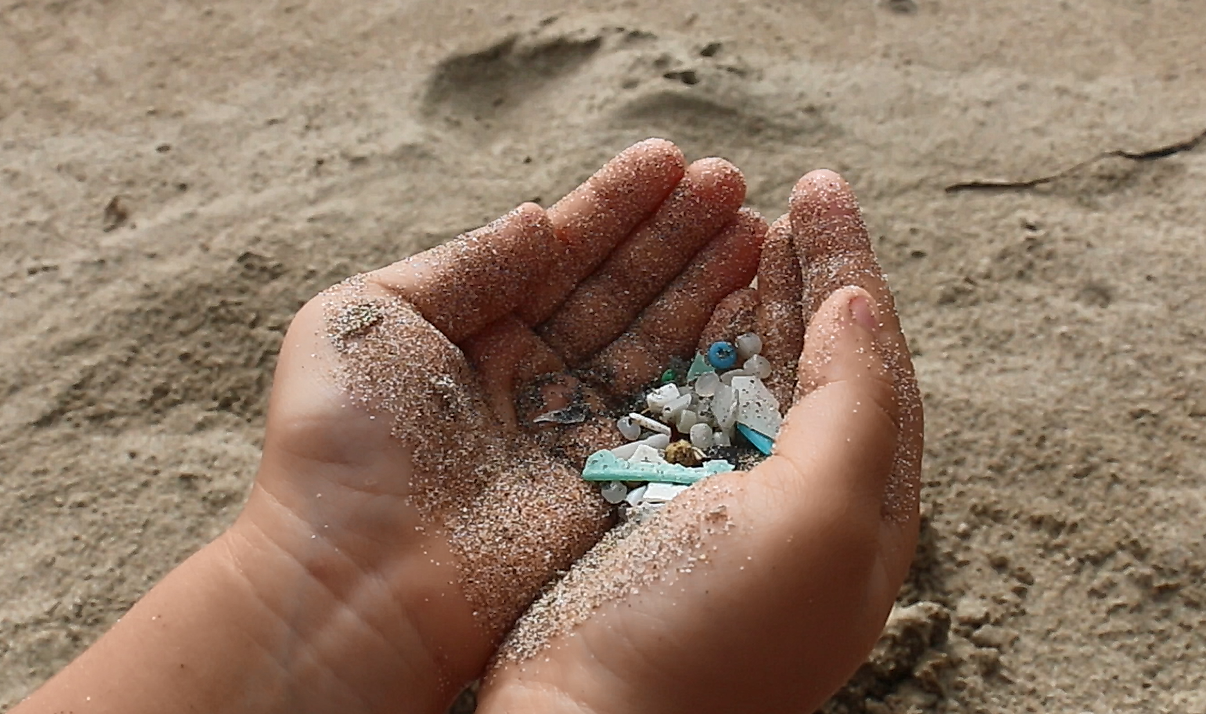PRESS RELEASE
THE PURE TOUR
12 February 2018.
A national tour of speaking engagements with global ocean plastics experts Marcus Eriksen and Anna Cummins from the 5 Gyres Institute and Raquelle De Vine from Algalita marine research, has so far experienced broad support for a ban on plastic bags, and further measures to reduce New Zealand’s plastic pollution.
“The global effort to save our seas from plastic pollution, is all about zero waste on land, making that local connection between how we use plastic here, and how it effects all of these things in the ocean out there” Says marine scientist Marcus Eriksen.
The PURE (Plastic Use Resistance Education) Tour includes talks and workshops in Auckland, Raglan, Ruatoria, Gisborne, Napier, Masterton, Levin and Wellington, and aims to raise awareness of ocean plastics, New Zealand’s contribution to the problem, and drive a national discussion around potential solutions. It also includes a microplastics survey along the eastern seaboard, on board Ngati Kahungunu ocean voyaging waka Te Matau a Maui.
INDIGENOUS PEOPLES AT THE CORE
“Indigenous involvement is pivotal to forging solutions for this problem. We are people of the ocean, and when the ocean is not well, we are not well” Says Ms Ngata “In addition to the impacts, we also have a wealth of ancestral science and principles that can contribute to the conversation – so we are very excited to have our ocean voyaging community involved in the science around understanding microplastics, and we very much view this as an extension of our opposition to oil and commitment to
kaitiakitanga”.
Iwi Leaders also signalled their support, issuing a resolution at Waitangi to seek a national plastic bag ban from government, as well as the establishment of a national working group on plastic waste reduction, and government investment in microplastic contamination research.
PLASTICS PROBLEM ON A PAR WITH CLIMATE CHANGE
The impacts of plastic pollution upon our ecological and physical wellbeing are on a par with climate change, but our plastic waste policy responses are roughly where climate change policy was at in 1990, said Stephanie Borrelle, PhD scholar presenting at the PURE Tour launch summit in Auckland.
Toxins released into the fish as ocean plastics break down in their digestive system, enter the foodchain, creating signficant health problems from humans including infertility and cancers.
Dr Trisia Farrelly spoke to a longstanding weight of evidence suggesting any microplastics in marine environments is not a good thing – and that many scientists who are concerned about the health effects of plastic chemical ingestion have had to move beyond “hard science” facts and engage communities, lawyers and activists to solve the human health problems associated with plastics.
Marcus Eriksen agrees, adding “The science that proves these links is being utilised by activists and NGOs on the ground to create the policies we need. “
This science includes significant expeditions across all 5 oceanic gyre regions, including the South Pacific ocean, where Algalita marine research and education carried out research last year tracking a plastic garbage “smog” covering a size roughly 11 times the size of New Zealand. Raquelle DeVine was on the research vessel and personally witnessed evidence to suggest New Zealand origin waste throughout the smog. “We were miles from anywhere and were pulling up New Zealand fishery fishbins, which fish were living within”, it was quite shocking”.
CHANGE IS ACHIEVABLE AND IMMINENT
“There are so many correlations between climate change and plastics pollution” says ocean plastics expert Anna Cummins of the 5 Gyres Institute “change is absolutely possible but what I’ve learnt is that it can only happen through collaboration – its an incredibly uphill battle but if we can really hold big oil and big plastic accountable, and have this struggle led by Māori and frontline communities, with the rest of us supporting in any way we can, that’s the only way we’re going to get it done.
The PURE Tour will culminate in a march at the end of February through Wellington, to present the Greenpeace petition for a single use plastic bag ban, to parliament.
For further details on the PURE Tour, or the march, see the PURE Tour – Aotearoa, The Pacific and Plastics facebook page.
ENDS
Enquiries to: Tina Ngata ph: 021482428 tinangata@gmail.com
Massive South Pacific Ocean Garbage Patch a Dead Place
https://www.radionz.co.nz/international/pacific-news/335705/massive-south-pacific-ocean-garbagepatch-a-dead-place
Waka To Help Reduce Ocean Plastic Pollution
https://www.radionz.co.nz/news/te-manu-korihi/348750/waka-to-help-reduce-ocean-plastic-pollution
Ocean-going waka sets out on scientific quest
https://www.stuff.co.nz/environment/101305745/Ocean-going-waka-sets-out-on-scientificquest?cid=app-iPhone




